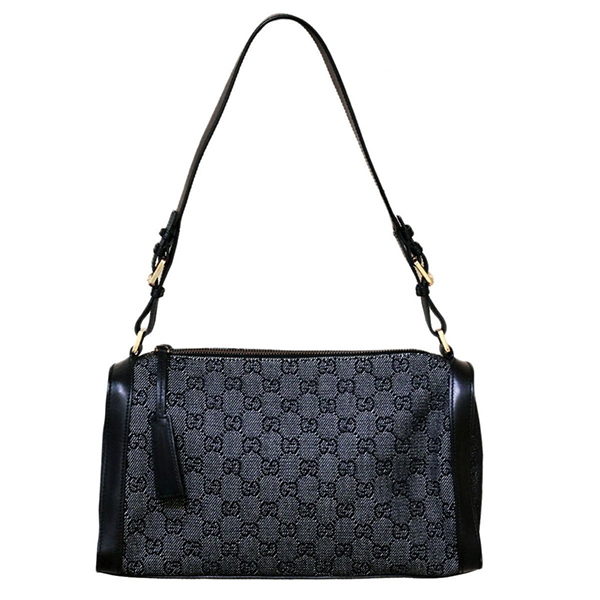Gucci found its start in 1920 as a leather handbag brand after Guccio Gucci became enamored with train travel luggage he saw urban travelers using in Europe. When Guccio returned back to his family home of Florence, he was determined to open his own leather bag business based on his observations. The Gucci line of leather handbags with classic design and features became a desired product.
With the success of the company early on, even as Italy carried itself through World War II, Gucci was able to expand its leather goods business once city at a time. The company moved to Milan and then Rome while still keeping its Florence base of home operations. Eventually, in the early 1950s the Gucci symbol and brand made its way to New York City. This allowed an introduction of the handbag and travel bag line to celebrities and stars who then made their own reverse migration to Italy to see more of Gucci’s products.
Gucci as a company saw success through the 1970s to the 1980s, but its own internal management almost caused the company to fail 60 years after its start. Intrigue, tax evasion, murder-for-hire, and finally selling off to a partnership corporation plagued Gucci through to the end of the 1990s.
Ironically, by the 2000s the Gucci look and brand had become so synonymous with luxury, it was being frequently copied and counterfeited around the world to cash in on the demand for the Gucci product. That triggered a wave of counterfeit enforcement in a number of countries. However, other jurisdictions freely allowed the illegal manufacturing, seeing profits against a Western symbol of decadence.
In recent years, the Gucci line has been involved in a number of legal battles over enforcing its patents and trademarks. In most cases and jurisdictions, Gucci has eventually won the battle, taking in sizable prizes in the form of financial penalties on the parties sued. In one aberration, the company has lost the rights to its GG logo in the United Kingdom, but the company has noted it’s not a fatal wound; the GG logo is still protected by other trademark rights in the U.K. and Europe.
Gucci today still continues to produce and sell luxury handbags along with a number of other accessories, products, and affiliations in product partnerships with other companies. The Gucci name is still associated with visible luxury worldwide, and the counterfeiting problems still existing, particularly in third world countries globally. The company produces fine handbag products from curved bamboo handle models to the traditional, Emily original look with the GG logo canvas bordered by dark, glossy leather pieces.
While the world looks for new ways to spend for high fashion, Gucci will continue to be among the names representing a standard of old school luxury tested by time. There’s no question, when looking at their latest handbags, as to the reason why their product continues to sell. The real query is instead why some don’t already own a Gucci luxury handbag among their collection of personal accessories to travel with.






